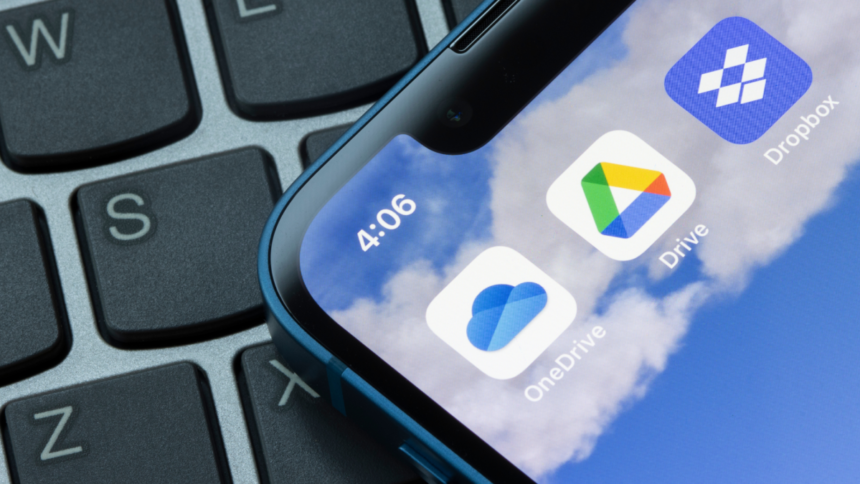The Ultimate Guide to Cloud Storage Solutions
Safeguarding your essential files requires more than a single backup; it’s advisable to maintain multiple backups for added security. While cloud storage services alone should not be your entire strategy, they do play a significant role. Many find it challenging to keep all the treasured photographs and important documents on physical drives due to space constraints. Moreover, cloud storage enables seamless syncing across various devices, allowing you to access a document created on your iPad from your Mac or Windows machine without hassle.
Choosing the right cloud storage provider today can be a complex task. With various services associated with particular ecosystems, your choice often hinges on the devices you regularly use.
Google One
For those deeply embedded in the Google ecosystem or using Android devices, Google One is an optimal choice. Every Google account provides 15GB of complimentary storage shared across Gmail, Google Drive, and Google Photos. Additional storage can be acquired for as little as $0.99 monthly for 100GB, or $2.99 for 200GB.
Google One automatically backs up your photos, facilitates large file sharing via Google Drive, and eliminates storage concerns in Gmail. The Google Drive web interface is user-friendly, and there are desktop applications available as well. Additionally, its pricing for storage is quite appealing, often cheaper than Microsoft’s offerings.
The 2TB plan is likely to meet the needs of most users, priced at $10 monthly or $100 annually, with family sharing capabilities. Users also benefit from a 10% rebate on purchases from the Google Store and Google Workspace Premium. Those needing more than 2TB can expand their storage up to 30TB, although costs can escalate to $150 yearly.
Microsoft 365
Microsoft continues to thrive by bundling various value-added services into a single package, a strategy that has solidified the popularity of Microsoft 365 among enterprises. A comprehensive plan not only grants access to the full Office suite but also includes Microsoft Teams for business collaboration.
Each user receives 5GB of complimentary OneDrive storage, which can be upgraded to 1TB through a subscription. Unfortunately, unlike Google One, there are no intermediate plans available.
The Microsoft 365 Family option provides a similar setup for individuals, offering access to all premium Office applications, AI assistance through Copilot, and a total of 6TB of storage space divided among six accounts—making it an excellent value for families or friends looking to share a plan, at $12.99 per month or $129.99 annually.
If managing multiple accounts isn’t for you, the cost of $9.99 per month for a single account may not be the best option, prompting users to explore other alternatives.
iDrive
When it comes to comprehensive data protection, iDrive stands out. This service is renowned for its ability to back up entire drives to the cloud while also providing collaborative features. New users can start with a generous 10GB free plan.
One drawback is the absence of an integrated productivity suite since the focus here is largely on backup. However, iDrive does offer end-to-end encryption—albeit this feature must be activated by the user, and forgetting your encryption key could lead to permanent data loss.
This service allows file uploads from your systems and sharing of data as well. The 5TB plan is available for $69.96 in the first year, while a larger 10TB plan is priced at $105 for the same period.
Proton Unlimited
For those prioritizing security over features, Proton Unlimited offers a viable solution. This plan includes access to Proton Mail, Proton VPN, and Proton Docs, along with 500GB of storage for $12.99 per month or $120 annually. The Proton Duo plan, which provides 1TB of space, costs $15 monthly. Free users, however, only receive 1GB of storage.
Although Proton’s pricing may not be the most economical compared to traditional syncing services, its emphasis on privacy and encrypted storage is a significant advantage. Being based in Switzerland, the service adheres to strict privacy regulations.
Sync
For a straightforward alternative to mainstream cloud storage providers, Sync excels in keeping things simple. Its focus remains on efficiently storing and syncing files across devices without unnecessary extras. This approach harkens back to the earlier, less complicated days of cloud storage.
Sync offers a free plan with 5GB of storage, and the annual cost for 2TB is $96, which is comparable to other services like iCloud+ and Google Drive. A prominent feature is client-side encryption, ensuring that your data remains inaccessible to Sync itself. The service includes lightweight applications for both Mac and Windows, along with mobile versions. Any files dropped into the Sync folder will immediately sync to your account, with no restrictions on file sizes.
pCloud
For users seeking a reliable cloud backup service, pCloud offers compelling features. It provides 10GB of free storage—far exceeding many competitors—and features a unique lifetime storage option for a one-time payment, appealing to those averse to ongoing subscriptions.
As of now, users can secure 500GB for $199 or upgrade to 2TB for $399. While annual plans are available, the $99 per year for 2TB doesn’t present the best value compared to alternatives like Google One or iCloud+ at the same price point.
iCloud+
Aimed specifically at users entrenched in the Apple ecosystem, iCloud+ serves not just as a storage solution but also manages the backup for users’ settings and device data. For those fully utilizing Apple’s products, opting for iCloud+ could streamline the process of synchronizing photos, videos, and documents across devices, with privacy also being a key focus via end-to-end encryption.
Any free iCloud account offers 5GB of storage, with iCloud+ providing various flexible plans starting at $0.99 for 50GB. The 2TB option at $9.99 per month or $99 yearly is often ideal for general users, especially as it allows for family sharing, with a similar option available at 200GB. However, using iCloud+ is not advisable for those who frequently operate across multiple platforms or require consistent web-browser access, as the Windows application and website are less user-friendly compared to other options.
Reasons to Avoid Dropbox
Although Dropbox once dominated the cloud storage landscape, it is notably absent from this discussion. Originally praised for its simplicity and multi-platform function, the current situation has changed significantly. A free Dropbox account has become restricted to three devices, limits data storage to just 2GB, and suffers from inferior transfer speeds compared to paid tiers.
The service has increasingly shifted its focus towards business features and third-party integrations, leading to higher prices without the variety previously available. The cost for 2TB of storage is set at $11.99 monthly, while competitors like iCloud and Google One offer better rates.
Furthermore, the user-friendly approach that characterized its earlier versions has diminished. Recent performance troubles with the Mac app prompt users to consider third-party alternatives instead. Given these factors, relying on Dropbox for personal use is no longer a logical choice.












